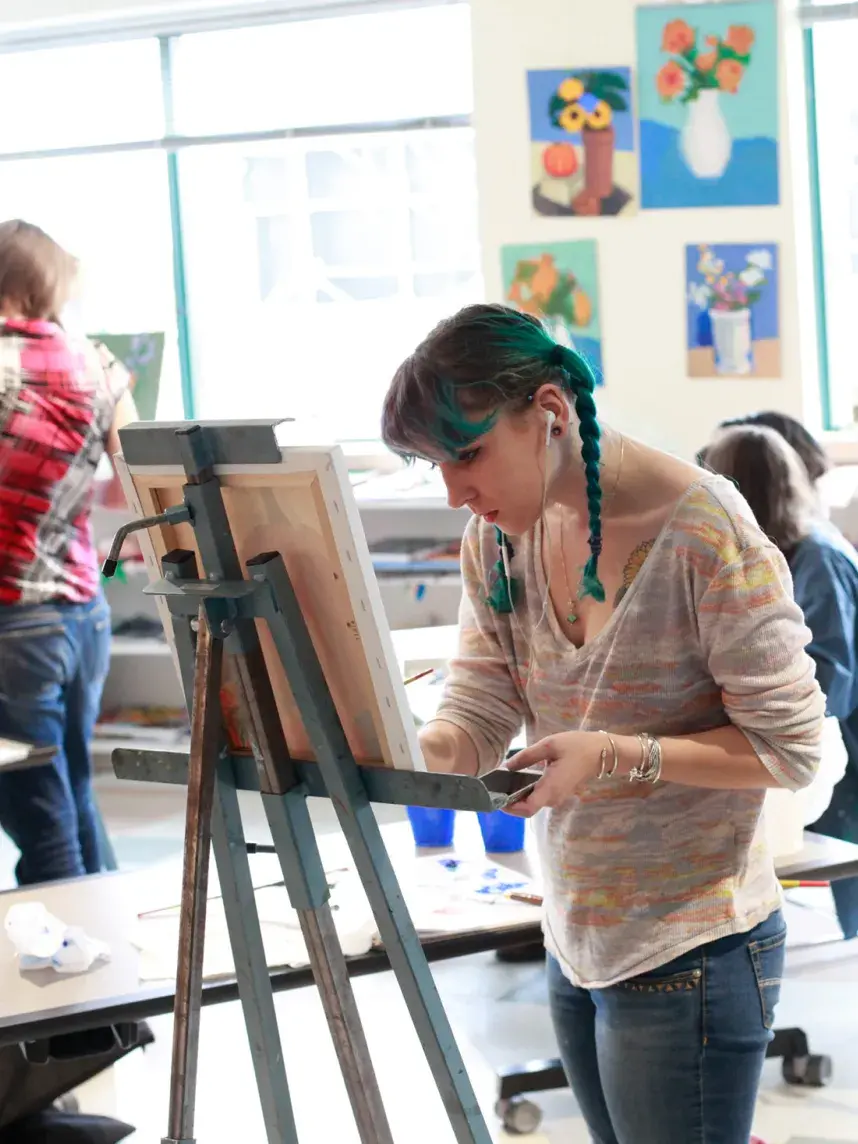Working inside our world-class studios and labs, and alongside Lesley’s accomplished faculty practitioners, our art and design students dive deep into shaping and refining skills in their chosen disciplines. But as a Lesley student, you’ll also tap into Lesley’s rich general education curriculum, bringing you the exposure and diverse ideas that come from exposure to a broad range of courses and perspectives.
BFA students complement their discipline-specific studies with courses specifically focused on the business of thriving as an art or design professional. Classes like The Business of Animation, The Working Illustrator, Fabrication for Exhibition, and Game Portfolio provide you with practical knowledge in areas ranging from business plan and project estimates to developing a personal brand and navigating financial sustainability. You’ll also interact with working professionals who come to campus to provide expertise on a range of real-world issues.

